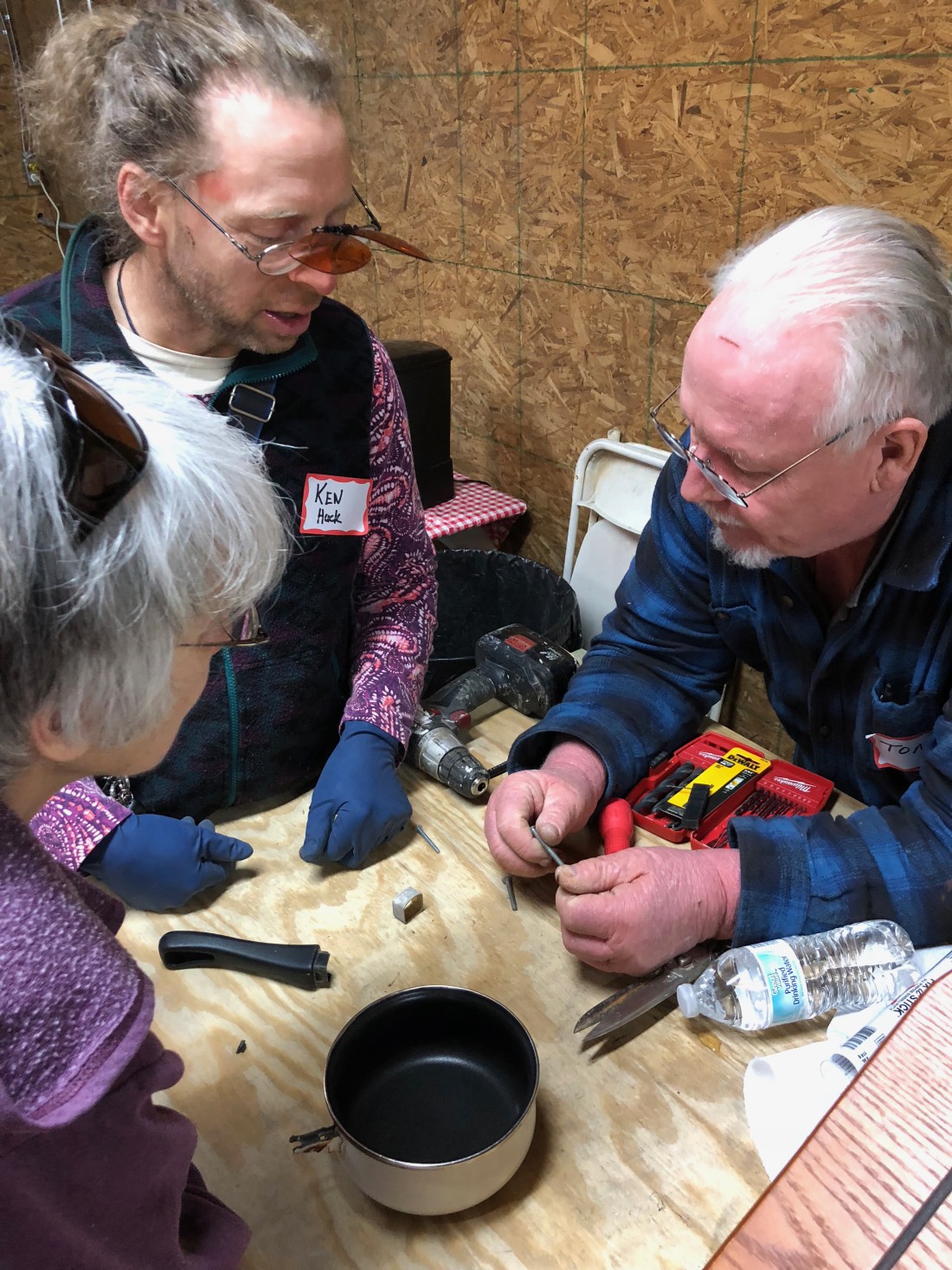For Daniel Hettinger, there’s more to fixing broken small appliances than just offering neighbors a helping hand. Hettinger is in charge of the WNC Repair Café, which matches volunteer experts with area residents who bring broken items to Living Web Farms’ biochar facility in Hendersonville.
The upcoming free event, slated for Tuesday, April 24, from 5-8 p.m., is the second of four such gatherings planned for this year. The first one, in January, drew more than 40 people and resulted in 30 repairs, remembers Hettinger. That night, volunteers gave new life to a clock, a snow globe, two bicycles and many other items.
“We’ll have volunteers standing by to fix a wide variety of things,” he explains. “And it’s hands-on help, meaning they will teach you how to fix it yourself. So in that sense, you’re not just helping a neighbor: You’re also providing an educational element for those who can’t repair these things themselves.”
The items brought in, he says, run the gamut from tools and knives in need of sharpening to small engines, bicycles, household appliances and some electronics.
The inspiration for the event grew out of Hettinger’s experience of buying an oven and having it break down. “All of my friends were saying, ‘Just get a new one,’ but I didn’t want to do that,” he recalls. “I went online, figured out what was wrong with it, and I fixed it. … That was a pivotal moment for me.”
Building resilient communities
But Repair Cafés aren’t just a local phenomenon. The first one, the brainchild of Martine Postma, took place in Amsterdam in October 2009. The event was so successful that she organized several others across the city. In 2010, Postma launched the Repair Café Foundation, a nonprofit that provides professional support to groups around the world that want to establish such a program in their area.
There are at least 47 Repair Cafés in the United States today, and that number doesn’t include similar models operating under different names. The goal is to remind folks that there are alternatives to the throwaway culture.
The idea is a good fit with Living Web Farms’ philosophy of sustainability, notes Hettinger.
“It’s about building resilient communities,” he explains. “It’s about teaching people to be landowners and managers of their own resources and teaching them to be self-sufficient.”
Hettinger says he relies on a dozen or so volunteers to do the repairs and teach. Many are retirees who grew up in a time when things were built to last, and people didn’t view everything as disposable. “I think many of them … just want to give back to the community. They have these skill sets and it really does match up with what we need, so we’re able to marry those together to fit in with the mission of the farm.” Still, continues Hettinger, they could definitely use more volunteers.
Along with free repairs, refreshments will also be provided, as well as plenty of how-to books that attendees can read or borrow. At the January event, zucchini bread, apple cider and coffee were on offer.
Subverting the throwaway culture
Hettinger urges those interested in attending to sign up in advance and let him know what the problem is. “If we know how many people are coming, we can stagger the times a little bit so people aren’t spending so much time waiting,” he says. “And if we know what you need fixed, there’s an increased likelihood that we’ll be able to fix what you bring in.”
While volunteers supply the know-how, labor and tools, if parts must be purchased to complete the repair, Hettinger says the volunteers can help the owner figure out how to get the right part, so they can bring it with them to the café.
There are, of course, things the volunteers won’t be able to fix — such as older televisions, cars and motorcycles — but they can handle most things they’re likely to see.
Besides saving residents some money, stresses Hettinger, the Repair Café is good for the environment.
“When we fix these things, it keeps them from being tossed aside or thrown away. You wouldn’t believe how many things you can find in landfills that are 99 percent OK. There are people like us who don’t mind going out and figuring out how to fix things. But a lot of folks just aren’t comfortable doing that. The Repair Café not only helps them learn a new skill but keeps those things that would otherwise go to a landfill in use and in people’s homes. It’s just a better way to manage your resources and make your community more sustainable.”




Before you comment
The comments section is here to provide a platform for civil dialogue on the issues we face together as a local community. Xpress is committed to offering this platform for all voices, but when the tone of the discussion gets nasty or strays off topic, we believe many people choose not to participate. Xpress editors are determined to moderate comments to ensure a constructive interchange is maintained. All comments judged not to be in keeping with the spirit of civil discourse will be removed and repeat violators will be banned. See here for our terms of service. Thank you for being part of this effort to promote respectful discussion.